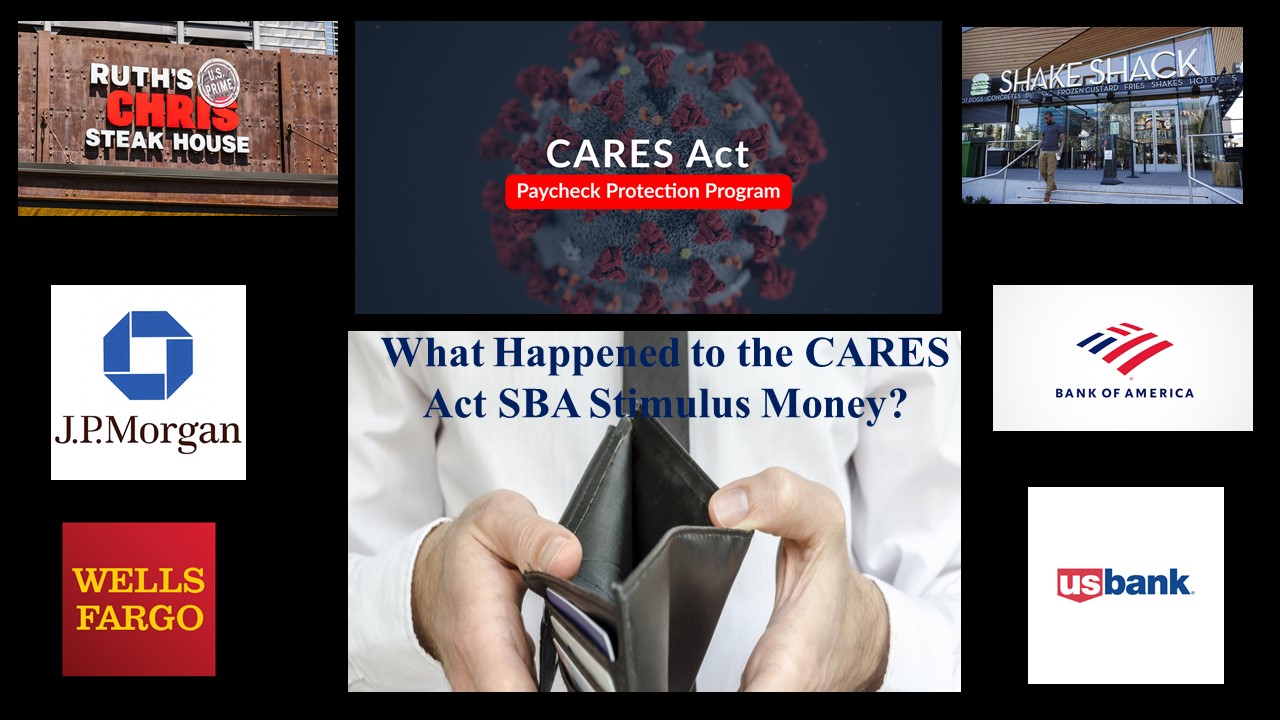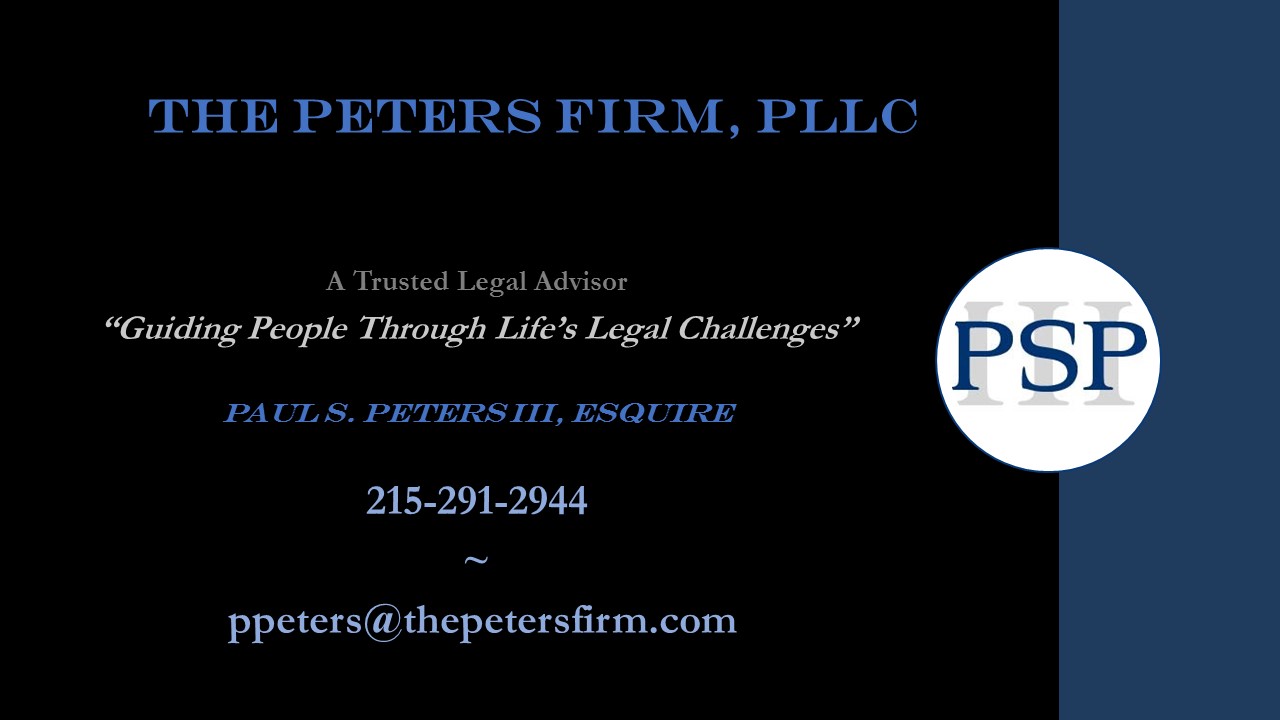
What Happened to the CARES Act Stimulus Loans for Small Businesses?
It appears small businesses across the United States were denied, ignored, locked out, and forgotten in the distribution of $349 Billion given to the Small Business Administration (SBA) for small businesses impacted by the Coronavirus epidemic. The loans were part of the Paycheck Protection Program(PPP) established by the CARES Act passed in March 2020. This came to light on April 16, 2020 when the government announced the SBA Program ran out of money. This revelation leads to the question: What Happened to the CARES Act Stimulus Loans for Small Businesses?
Under the SBA, a small business is defined as a business with 500 or fewer employees. It turns out large companies such as Ruth’s Chris Steakhouse ($20 million and $15 million loans), Shake Shack ($10 million loan), and Potbelly Restaurants received millions in loans; Ruth’s Chris Steakhouse has $5,000 employees. Shake Shack announced it was returning the $10 million loan it received, but do not be deceived, it is not out of the kindness of the CEO’s heart, but because Shake Shack was able to obtain equity financing by other means.
Loan Distribution
Inc.com reports in an April 17, 2020 article that the SBA approved 1,661,367 loans split among 4,975 lenders. The average loan size was $206,000.
The top industries obtaining loans were:
- Construction, 177,905 loans for $44.9 billion (13.1%)
- Professional Scientific, and Technical Services, 208,360 loans for $43.3 billion (12.7%)
- Manufacturing, 108,863 loans for $40.9 billion (12%)
- Health Care and Social Assistance, 183,542 loans for $39.9 billion (11.7%)
- Accommodation and Food Services, 161,876 loans for $30.5 billion (8.9%)
The top states obtaining loans were:
- California, 112,967 loans for 33.4 billion
- Texas, 134,737 loans for $28.5 billion
- New York, 81,075 loans for $20.3 billion
- Florida, 88,997 loans for $17.9 billion
- Illinois, 69,893 loans for $16 billion
CARES Act Litigation
The CARES Act is not even a month old and the lawsuits have already begun.
In response to the revelation of the loan distribution and exhaustion of funds, a class-action lawsuit was filed over the weekend against JP Morgan Chase, Bank of America, Wells Fargo, and US Bank. The complaints were all filed in the United States District Court for Central California. The class-action lawsuits allege Unfair Business Practices, Fraudulent Business Practices, Unlawful Business Practices, False Advertising, and Fraudulent Concealment. The allegations in the complaints against the banks are:
- The banks prioritized large loans due to the higher fees for the bank instead of a “first come, first serve” process.
- By not disclosing this action, the banks denied small businesses the opportunity to seek loans for other banks
A class action has been filed in Maryland against the SBA claiming discrimination against women and minorities. One claim in the lawsuit is that “The amount of funding was woefully inadequate for the demand and they knew the businesses they are making wait are disproportionately owned by women and minorities. They knew these people weren’t going to get funding and they excluded them from the program.” Another class action filed in Texas against Frost Bank alleges discriminatory practices alleging “Frost Bank violated the CARES Act and the SBA by refusing to accept applications for payment protection plan loans from companies unless they already had a business account open with the Bank.”
Another notable round of lawsuits were filed in Michigan and Wisconsin on behalf of two gentlemen’s clubs claiming constitutional violations since the CARES Act loans disqualify a gentlemen’s club or any other business model that is sexually based, from obtaining a CARES Act loan.
This is only the beginning of the flood of litigation to come regarding how the loans were approved and distributed as well as the government established eligibility criteria. One fact that is clear, true small businesses were disadvantaged and left out of the first round of stimulus money intended for them, not for the likes of Ruth’s Chris Steakhouse and Shake Shack. If nothing else, the positive of these early lawsuits is if Congress issues a second round of stimulus money, Banks and the government will be more diligent and diverse in approving loans for true small businesses. At least we can hope it does!
– Paul S. Peters III, Esquire is an attorney located in Elkins Park, PA serving clients in Montgomery, Philadelphia, Bucks, Delaware, Chester, Lehigh, Lancaster, Northampton, and Berks Counties in the areas of Employment Law & Small Business Needs, Bankruptcy, Criminal Defense, Family Law, and Estate Planning.
TRUSTED, COMPASSIONATE, ZEALOUS, AND EXPERIENCED PENNSYLVANIA EMPLOYMENT LAW ATTORNEY
If you are involved in an Employment Law matter as an employee or employer and need legal guidance, advice, and consultation in: Montgomery, Philadelphia, Bucks, Delaware, Chester, Lehigh, Lancaster, Northampton, Berks, Adams, Cumberland, Dauphin, Franklin, Fulton, Huntington, Juniata, Lebanon, Mifflin, Perry, Snyder, York Bradford, Cameron, Centre, Clinton, Lycoming, Montour, Northumberland, Potter, Sullivan, Tioga, Union, Carbon, Columbia, Lackawanna, Luzerne, Monroe, Pike, Schuylkill, Susquehanna, Wayne, and Wyoming County
It is important you contact the trusted and experienced Employment Law Attorney:
Paul S. Peters III, Esquire at:
215-291-2944
ppeters@thepetersfirm.com



